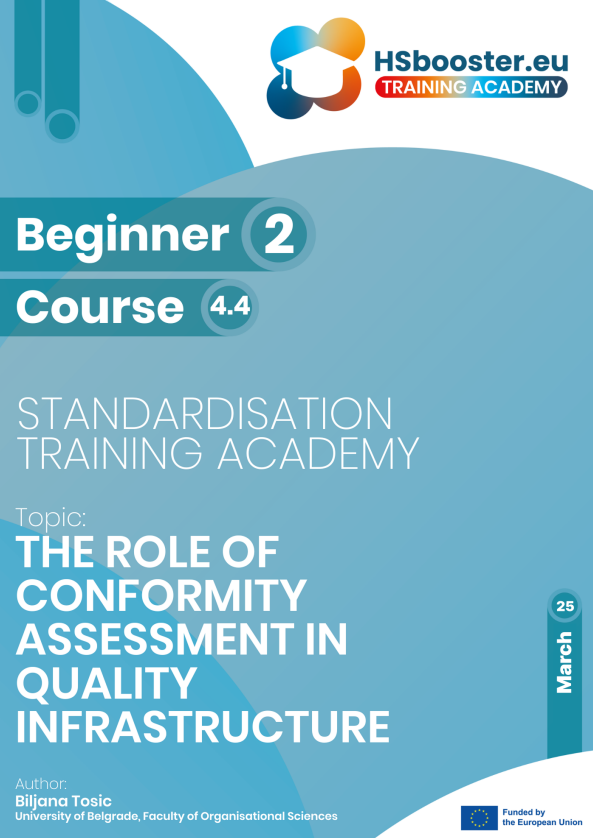- Beginner 2, Course 4.4
According to the ISO 17000:2020 Conformity assessment: Vocabulary and general principles, conformity assessment is defined as ‘’a demonstration that specified requirements are fulfilled’’. Accordingly, conformity assessment can also have a negative outcome, thereby demonstrating that the specified requirements are not fulfilled. Conformity assessment consists of activities such as testing, inspection, validation, verification, certification, and accreditation. These specified requirements may be detailed or general and may be stated in normative documents, such as regulations, standards, and technical specifications. 4 Accordingly, the object of conformity assessment is defined as ‘’an entity to which these specified requirements apply (e.g. product, process, service, system, installation, project, data, design,
material, claim, person, body or organisation, or any combination thereof)’’.
After completing this module, you should be able to:
- Understand that, generally speaking, conformity assessment comprises testing, inspection, and certification that are used in all fields of investigation, innovation, process improvement, productivity, product development, product compliance, etc;
- Understand that the conclusion of the conformity assessment activity is a statement of conformity which should provide unequivocal identification of the object and of the specified requirements with which the object has been found to conform; and
- Understand that products that have been found to conform to the specified requirements should have a mark of conformity, either as the supplier’s trade mark, a certification mark, or a conformity mark required by legislation, such as the CE mark.


